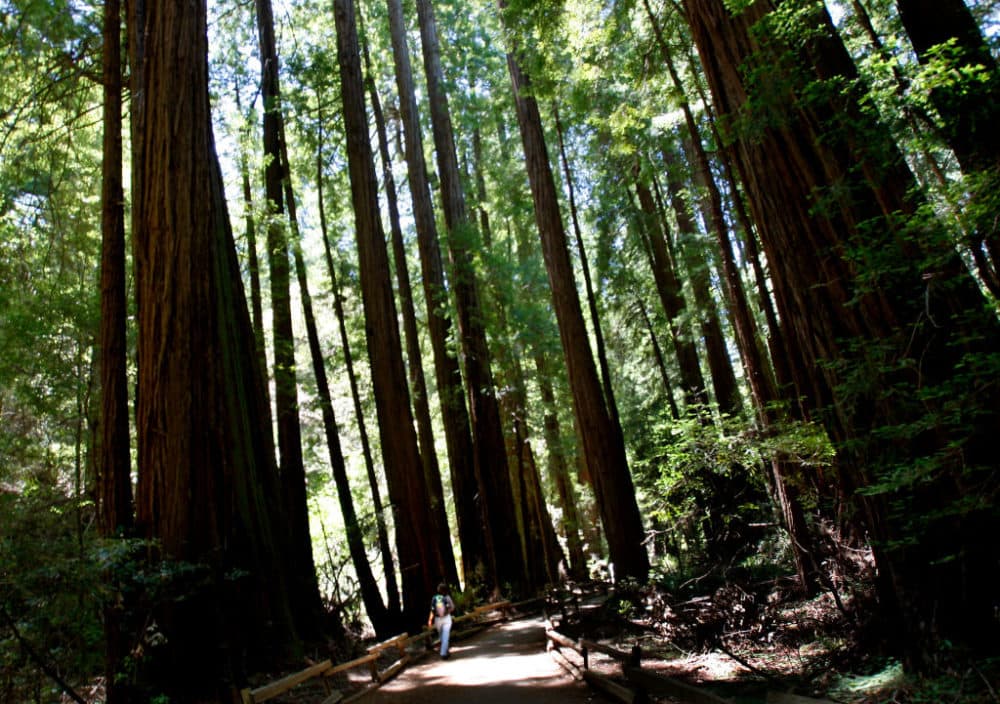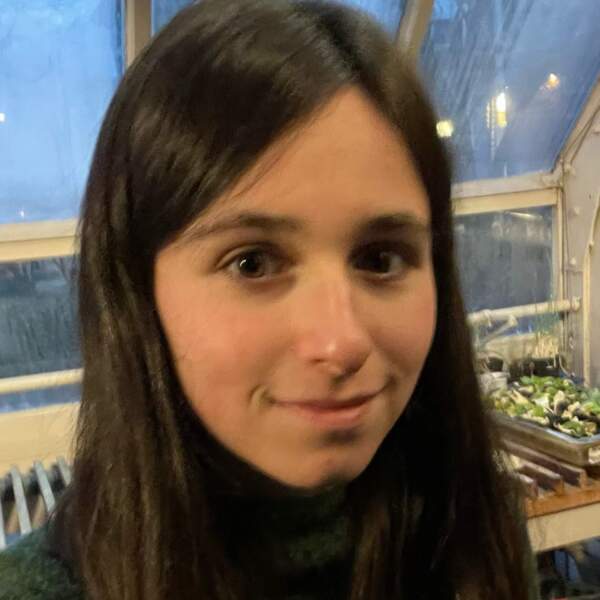Advertisement
Commentary
'The Earth is dying, and the people in power are looking on'

“We want you to panic!” I screamed at the audience gathered in the American Repertory Theater, echoing the words climate activist Greta Thunberg said in a speech to the United Nations.
That day, I felt almost as powerful as I imagine she felt. My friends and I linked arms and demanded that the audience (which, for me at least, represented all the adults of the world) save the planet we are about to inherit.
I got the chance to perform in “Wild: A Musical Becoming” at the A.R.T. last fall through a series of lucky circumstances. I am a member of the Boston Children’s Chorus, a group of choirs that advocate for social justice through music. Sometimes the more experienced choirs of BCC get opportunities to be a part of larger musical productions in the Boston area.
But I don’t think we’d ever been invited to perform in a show with quite so many big names as this one: Idina Menzel, Javier Muñoz, V (formerly Eve Ensler) as the writer. My friends and I were so excited to meet, nay, to sing with such legends. But beyond that, the show was centered around the very thing that many young people like me, and my friends in BCC, are increasingly passionate about: our dying Earth.
The climate crisis is a part of our lives, and we are still so far away from taking the actions required to thwart its most significant impacts. Earth Day is today, but to me the day is more of a reminder of how far we have to go, than it is to celebrate our planet's beauty. How can I appreciate the redwood forests when I see scorch marks marring their trunks? Or the beautiful Gloucester beaches when I pull up bits of plastic along with sea glass?
I could talk about climate change for hours, and that’s part of why “Wild” was almost surreal. Here I was, being told to say the things that I’d long muffled — in front of skeptical relatives, frustratingly neutral teachers, even my own classmates. “Feel it!” our conductors told us. “Tell the audience with feeling!”
The lines went: “We want you to panic/We want you to act/You stole our future/And we want it/We want it back!”
Earth Day is today, but to me the day is more of a reminder of how far we have to go, than it is to celebrate our planet's beauty
I hope people in the audience at these shows understood that we weren’t acting when we yelled those words. We meant them. We weren’t acting like frustrated, passionate young people — that’s who we are. And here was our chance to tell people, to make them feel what we felt.
To me, that’s why art is such an effective form of activism. It inserts emotion and humanity into crises that are often talked about in less emotional ways: with bar graphs and scientific papers, or bills in Congress. Art brings us to the bottom line: the Earth is dying, and the people in power are looking on. Art has the power to cut through the rhetoric and make people experience the urgency of these issues.
Traditional activism has always included the arts — protest songs and performances are nothing new. But with a crisis so time-pressed as climate change, the question is, is art really an effective way to create change — quickly?
I don’t know for sure. But I think about a Boston Children’s Chorus concert I sang in a few Thursdays ago at the Shalin Liu theater in Rockport, Mass. My chorus mates and I had the opportunity to shape the concert ourselves. (For bigger concerts, almost the entirety of the concert is planned by a larger group of BCC staff.) The theme of the concert was our changing climate and we decided we didn’t want a feel-good children’s chorus show, because we don’t feel hopeful about climate change. We wanted to tell the stories of climate change that are often ignored: how the disenfranchised suffer more acutely, and how capitalism perpetuates inaction.
Art brings us to the bottom line: the Earth is dying, and the people in power are looking on
We strove to tell the truth that night, remembering what it was like to perform in “Wild” a few months before. Our songs were punctuated by scripts we had written about these crises. “Don’t teach your kids to recycle, teach them to politically organize,” my friend told the audience. “We need to recognize that we all have a right to a livable future.”
Later, I stood at the front of the stage as our final song ended. I looked into the audience.
Activists are the ones on the streets. The ones striking and protesting and sitting on Congresspeople’s lawns. They are the ones voting and joining organizations and singing. If you take anything from our concert tonight it is that we need you to become activists. Now. In this room. We need you to help us dismantle the systems that are killing us all, and we need you to help us now. The future is at stake, and the whole world is in our hands.
We opened the curtain in the back of the stage to reveal the ocean behind us, and light-filled the room. We raised up our arms and energy coursed through us. The concert was beautiful. It was also devastatingly true.


